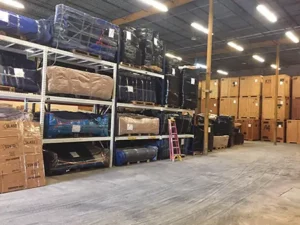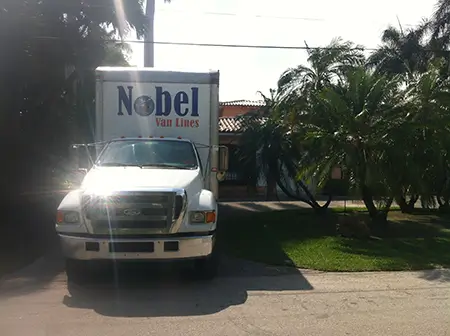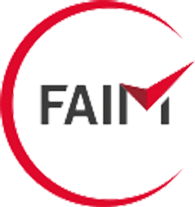GET YOUR
FREE Quote
FREE Quote




 Moving to Iceland from US Made Simple & Straightforward
Moving to Iceland from US Made Simple & StraightforwardMoving to Iceland and getting a residence permit starts with a dream. It’s no surprise why over 10,000 foreigners move to Iceland on a yearly basis. Nature in this country is majestic. There are countless geological masterpieces and untouched wilderness, so a move to Iceland is a mix between modern infrastructure and nature.
Locals are friendly and you don’t even need to speak the Icelandic language if you come from a foreign country. Pretty much everyone speaks fluent English. Despite being a big city, the capital Reykjavik is a dream for every Icelandic citizen, as it also has a small town feel.
Culture and social progress are among the locals’ priorities. Then, think about the northern lights, as well as gender equality and unique local traditional faiths. To top all these up, Iceland has made an impressive recovery after the 2008 financial crisis, offering one of the highest standards of living in the world.
But then, whether you’re after a permanent residence permit, the Icelandic citizenship, a work permit, a residence permit renewal or perhaps a student visa, or more information on the personal income tax or the Iceland immigration fee, you need to plan this move accordingly.
Being one of the Schengen countries, Iceland allows Americans in without a visa for up to 90 days. You don’t need a residence permit then, not to mention Icelandic citizenship. If you need to stay longer, whether to attend an Icelandic university or for family reunification, you’ll need to apply for a visa. There are more options here when applying for a residence permit:
The residence permit is the first step to Icelandic citizenship.
Every foreign citizen from the USA must deal with Icelandic authorities if they want to spend more than 90 days in a new country like Iceland. Once in there, you can experience the vibrant culture, same sex marriage, and even go for permanent resident status at some point.
The climate in Iceland is relatively cool. Winters are mild, despite most expectations, but the oceanic climate also brings in cool summers. In the wintertime, you’ll get around 0 degrees Celsius, while summer months can bring up to 15 degrees.
Bring cold clothes, but since they’re bulky and can add to the high cost of moving, you may want to stock up in Iceland instead.
By the time you get a residence permit, you’ll be familiar with the weather. By the time you can apply for Icelandic citizenship, it’ll feel perfectly normal.
Make sure your residence application form is completed and accepted, your criminal record is clean, and you can use your local connections and local newspapers or sites to find accommodation. You can rent a house, flat, row house, duplex, a floor, or even a room.
There’s a temporary shortage of apartments, so prices are high. Expect to pay up to $2,000 for a three bedroom apartment in Reykjavik and up to $500 for a room.
A rural area should be cheaper than the capital or other urban areas, but you’ll need to look for transportation too.
Here are a few sites to consider:
It’s difficult to buy a home before settling in when you move to Iceland. Our international moving company will take your stuff anywhere, though, even if you only get a room. Your move to Iceland and your path to becoming an Icelandic citizen will be a matter of time only.
While the rental market keeps prices high, that’s probably the main issue you’ll have, whether you’re moving to Iceland for family reunification or a new career. Other than that, getting a work visa for seeking employment, seeking permanent residency because of a family member, or trying to get an import permit or other types of residence permits will be straightforward and simple.
Iceland moving can be tricky for both US citizen and EU citizens because the cost of living is high. If you’ve already found a job, get ready to explore the viking culture and settle in because at least you’ll have some wages kicking in.
You should get money for at least three or four months without an income, just to play it safe. The Icelandic directorate may also require proof of financial self sufficiency, especially given the consumer prices and a limited work permit.
When moving abroad, moving costs are not to be overlooked either.
Despite relatively high living expenses, Iceland is a safe country with lots of opportunities. That’s exactly why more and more foreigners consider moving to Iceland. It’s worth noting you don’t need to learn Icelandic, while the police force is very effective at preventing crime.
The public healthcare system covers all residents, including EEA citizens and foreigners, something you may not have in your home country. People from different countries get treated the same.
There are also privately owned institutions to consider.
Explore international moving companies and get quotes from more of them. While a moving company can’t help with visa requirements or classified ads, most jobs will imply crating, packing, moving, and unpacking of anything, including cars, whether by air freight or water transportation.
Meanwhile, you can explore the local nightlife, focus on finding a job, get the ID Number that Iceland requires, or do some horseback riding in the countryside.
You’ll need an apartment or house if you move with family, and each member requires a permit before you enter Iceland. There are quite a few schools educating students in English or French:
Most schools are located in Reykjavik. Enrollment is simple and straightforward.
Icelandic is different from English, and some find it impossible. Everyone speaks English, and while it’s not mandatory to learn it, it can help with daily interactions and, of course, job opportunities.
There are local schools and courses where you could enroll, as well as private tutors. You can start learning Icelandic before even getting there. Apps like Duolingo and Babbel may help, not to mention the online program run by the University of Iceland, available at icelandiconline.com.
 Cultural Adaptation
Cultural AdaptationThe cultural shock is relatively low because Iceland is a high standard country. However, while cities are modern, rural areas stick to traditions, but with an influx of technology. The main shock will be the natural beauty. Ideally, you should travel a bit around Iceland before settling in.
You’ll love how friendly locals are, but you’ll also be surprised to find out that nothing’s ever on time.
Other than that, there’s no alcohol in grocery stores, and since the country is isolated, there’s a local approach to everything.
When moving, make sure all your documents are kept with you. No matter how professional a moving business is, you may need them in the process. From birth certificates and IDs to marriage certificates and rental contracts, everything should stay with you.
It also means you’ll need to be careful. If you lose something, getting a replacement through an embassy could take ages.
 Emergency Planning and Contacts
Emergency Planning and ContactsGet the contacts for the American embassy in Reykjavik, available over the official website at is.usembassy.gov. The embassy is available on social media, too.
As for the local emergency number, it’s 112 and covers everything, from fires and natural disasters to crime and accidents.
Bottom line, moving to Iceland is going to be an exciting adventure with plenty of opportunities.
Like many things in life, the financial aspect could be the most important one, so make sure you get a job that can cover all your expenses.
You don’t need to wait until you move there to find accommodation. Browse the market and local jobs, get a feel about wages and costs and your settling process will be much smoother.











Ⓒ 2025 – All Rights Are Reserved – MEETOOG & DOR SALAMA